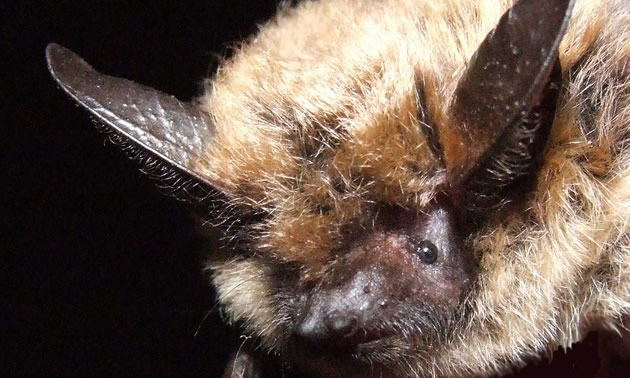Public asked to help monitor white-nose syndrome in bats

The Province, in collaboration with the BC Community Bat Program, is asking British Columbians to help preserve the diversity of bat species and be on the lookout for white-nose syndrome (WNS) – a disease that could be catastrophic to bat populations.
WNS is a deadly fungus that grows on the noses, wings and bodies of bats, causing them to repeatedly rouse from hibernation and often starve to death by spring. The disease has killed millions of bats in both the eastern United States and Canada, but has yet to be detected in British Columbia. In 2016, the disease was found in Washington state, prompting officials in B.C. to be prepared.
To help prevent WNS from taking hold in B.C., the Province is making investments in bat conservation projects. Recently, BC Parks installed a bio-cleaning station at Horne Lake Caves Provincial Park to ensure visitors are not entering caves with contaminated clothing, gear or equipment, which researchers believe can carry the disease.
Funded through proceeds from the BC Parks Licence Plate Program, the bio-cleaning station helps remove fungal spores that could cause the disease. Before entering the caves, visitors walk along an artificial turf mat to scrub fungal spores off their shoes, and then step into a diluted detergent and water solution, followed by a water rinse. The same process is applied when leaving.
Other bat conservation projects supported through the licence plate program include a bat-friendly gate at Cody Caves Provincial Park. The gate lets bats fly in and out, but prevents people from entering the caves. BC Parks has helped expand the North American Bat Monitoring program and participated in the Annual Roost Count program with partner organizations throughout the province to help learn more about bat populations.
Never touch a bat with bare hands. Anyone who finds a dead bat is asked to report it as soon as possible to the Community Bat Program at 1-855-922-2287 or: [email protected]
Quick Facts:
- British Columbia has the most bat species in Canada (16 of the 18 Canadian species).
- About half of the bat species in B.C. are of conservation concern.
- Bats in Canada navigate and find prey with echolocation. Using the sound and timing of the echo from their voice, bats can determine the range, size and type of objects in front of them.
- Bats consume millions of insects every night and help keep pests in check that are problematic for agriculture and forestry.
- WNS has a near 100% mortality for some species, including the little brown myotis, which is now listed as endangered in Canada.








